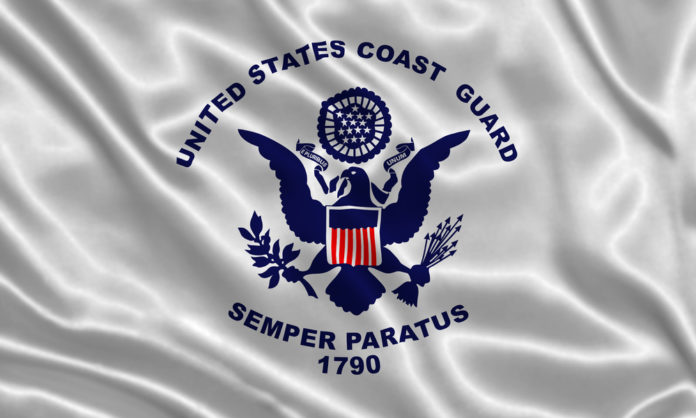The protesters claimed the awardee’s price was unreasonably high, exceeding both the government’s estimate and the average of offerors’ prices. They contended the agency hadn’t compared prices to the government estimate as required by the RFP. GAO found the agency reasonably eschewed the government estimate because it was no longer accurate; it didn’t reflect price increases caused by the COVID-19 pandemic. Moreover, while the awardee’s price was the highest, it was within 15 percent of the mean. The awardee had the highest-rated proposal, so its slightly higher price was reasonable.
Master Boat Builders, Inc.; Steiner Construction Company, Inc., GAO B-421254 et al.
Background
The Coast Guard issued an RFP seeking cutter vessels used to maintain navigational aids in inland waterways. Five offerors submitted proposals. The Coast Guard selected Birdon America, Inc. for award. Birdon had the highest-rated and the highest-priced proposal. Two unsuccessful offerors, Master Boat Builders and Steiner Construction, protested.
Analysis
Ownership of Production Facility
Steiner argued Birdon was ineligible because it didn’t own its own production facility. Master similarly argued Birdon could not demonstrate production capability because it didn’t own a production facility.
GAO found these arguments were premised on a fallacy—namely, that the RFP required offerors to own a shipyard. But the RFP only required offerors to describe their current production capability and any future plans to develop mature production capabilities. Birdon had satisfied this requirement. Birdon’s lack of a shipyard was irrelevant.
Maintenance Envelope
Master and Steiner both objected to significant weaknesses they received for failing to meet maintenance envelope requirements. The maintenance envelope is the space needed for repairs of the engines and generators.
Master argued that a significant weakness wasn’t warranted because the maintenance envelop was a big deal. Master contended it could easily address the issue with a quick redesign. GAO found Master’s argument amounted to disagreement with the agency.
Steiner argued its significant weakness wasn’t justified because the agency expected too much detail in its proposal. GAO noted that it’s an offeror’s duty to submit a well-written proposal with sufficient detail. Steiner had not shown the agency’s conclusions were unreasonable.
Disparate Treatment
Master and Steiner alleged various instance of unequal treatment. GAO didn’t find them compelling:
- Misaligned Stanchions – Both protesters alleged they were penalized for misaligned stanchions while Birdon was not. GAO found the weaknesses assessed to Master and Steiner were due to inconsistencies in structural calculations. While Birdon had misaligned stanchions, it provided calculations to substantiate its design.
- Repair Locker – The protesters complained Birdon had received strengths for tis proposed repair locker while they hadn’t received strengths for similar features. GAO noted that Birdon’s locker provided extra space in way that benefited the government
- Sewage Tank – Both protesters contended the Coast Guard erred in only assigning a strength to Birdon for its sewage tank. They argued their own tanks exceeded requirement and should’ve been assessed strengths. All offerors’ tanks exceeded the RFP’s capacity requirement. But only Birdon’s tank exceeded the requirement in a way that benefitted the agency.
Price Reasonableness
The protesters alleged the Coast Guard didn’t properly evaluate price reasonableness. They argued the Coast Guard failed to evaluate prices against the government estimate as required by the RFP. Moreover, they reasoned, Birdon’s price was 15 percent higher than the average of all prices and thus should’ve been found unreasonable.
The RFP provided the agency would evaluate reasonableness by comparing prices to a government proposal and to each other. The agency reasonably determined the government estimate was not accurate. The estimate didn’t reflect increased prices in the shipbuilding industry caused by the COVID-19 pandemic. Also, while Birdon’s price was 15 percent higher than the average of offerors’ prices, GAO didn’t find this problematic. After all, Birdon had submitted the highest-rated proposal. In light of this superiority, a price within 15 percent of the mean was reasonable.
Master is represented by Katherine B. Burrows, Jacqueline K. Unger, and Eric A. Valle of PilieroMazza PLLC. Steiner is represented Jacob W. Scott, Karl F. Dix, and Alexander Gorelik of Smith Currie & Hancock LLP. The intervenor, Birdon, is represented by W. Jay DeVecchio, James A. Tucker, Alissandra D. Young, and Victoria Dalcourt Angle of Morrison & Foerster LLP. The agency is represented by Kristen M. Bergh and Gabriel D. Soll of the Department of Homeland Security. GAO attorneys Charmaine A. Stevenson and John Sorrenti participated in the decision.
–Case summary by Craig LaChance, Senior Editor




